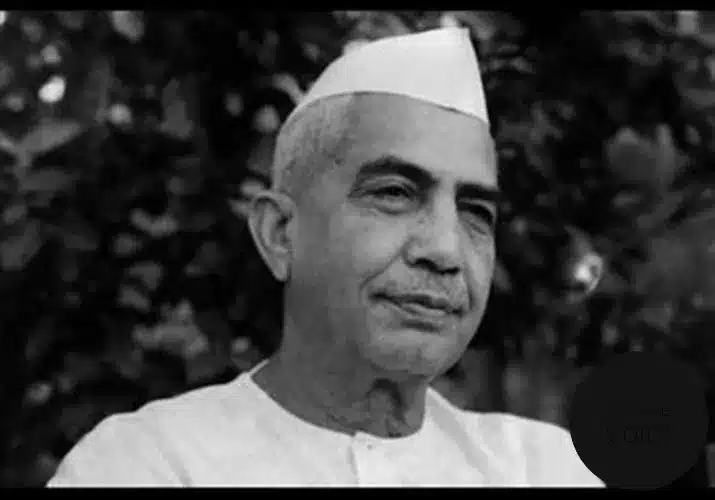Chaudhary Charan Singh: Advocate for Farmers’ Rights and Former Prime Minister of India

Chaudhary Charan Singh (23 December 1902 – 29 May 1987), was an Indian politician, who served as the 5th Prime Minister of India between 28 July 1979 to 14 January 1980.
Life and Career
He was born on 23 December 1902, in Uttar Pradesh, India. He did his schooling in Jani Khurd village. He completed his matriculation from the Government High School in 1919. He earned his BSc at Agra College in 1923 and his MA in History in 1925. He also studied law. In Ghaziabad, he practiced civil law.
He joined the Indian National Congress in 1929 and became a full-time politician. He was first elected to the U P Legislative Assembly from Chhaprauli in 1937. From 1946 to 1952 to 1962 and 1967, he represented the constituency.
In 1946, he became Parliamentary Secretary in Govind Ballabh Pant‘s government. Among the departments, he worked in were Revenue, Medical, and Public Health, Justice, and Information. In June 1951, he was named Cabinet Minister and headed the Justice and Information departments.
He was then appointed Minister for Revenue and Agriculture in Dr. Sampurnanand’s Cabinet in 1952. When he resigned in 1959, he was running the Department of Revenue and Transport. He was also Minister of Home and Agriculture in C.B. Gupta’s ministry in 1960. In Smt Sucheta Kriplani’s Ministry of Agriculture and Forests, he was Minister for Agriculture and Forests from 1962 to 1963. He gave up the Department of Agriculture in 1965 and took over Local Self-Government.
In February 1970, with the support of the Congress Party, he became the Chief Minister of the U.P. for the second time. The state was put under the president’s rule on 2 October 1970. After serving Uttar Pradesh, he gained a reputation for being tough on corruption, nepotism, and inefficiency.
He died on 29 May 1987, in New Delhi, India.
Tenure as PM
During Morarji Desai‘s coalition government, he served as minister of home affairs (1977–78) and deputy prime minister (1979) with his peasant- and agricultural-based Indian Revolutionary Party. The Janata coalition fell apart after factions quarreled in 1979, and Singh became prime minister with support from his old enemy Indira Gandhi, who imprisoned him during the state of emergency.
Major works
He was the main architect of land reforms in Uttar Pradesh and had a hand in formulating and finalizing the Department Redemption Bill in 1939. Additionally, he drafted the Land Holding Act in 1960 to make land holdings uniform across the state by lowering the ceiling. He was a strong believer in social justice and gained the confidence of millions of peasants. Indians celebrate his birthday on 23 December as Kisan Diwas or National Farmer’s Day.
Read More: 23 December: Remembering P. V. Narasimha Rao on his Punya Tithi
Observer Voice is the one stop site for National, International news, Sports, Editor’s Choice, Art/culture contents, Quotes and much more. We also cover historical contents. Historical contents includes World History, Indian History, and what happened today. The website also covers Entertainment across the India and World.

